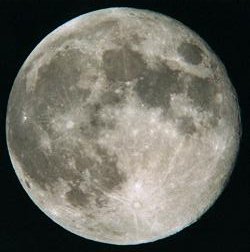I Ching, Yijing or Zhou Yi
"Oracle of the moon": © 2000 LiSe
 Yi Jing, Oracle of the Moon
Yi Jing, Oracle of the Moon



The Oracle of the Moon
(For those interested in the daily influence of the moon, see the Moonphase-oracle.)
I know the Yijing since the sixties, and my fascination with it never left me. Thinking about it as a book of wisdom, exploring it, finding forgotten meanings that suddenly open up a sentence, or using it as an oracle, it all helps to make the voice of my intuition audible. Usually the voice of common sense is much louder, but this book gives sound to that faint voice within. It makes my intuition the guide of my life.
I want to share it - so I made this website.
And where does the moon come in?

new moon
Some say, the character I (in Pinyin: Yi), CHANGE, like in the name of the I Ching, is a combination of the sun and the moon. The modern way of writing the character certainly looks like that.  A square, sometimes a circle, with a
line across, is ‘sun’, and the lower part a moon-sickle with rays.
A square, sometimes a circle, with a
line across, is ‘sun’, and the lower part a moon-sickle with rays.
Others say it represents a lizard or chameleon. If one adds the character for insect, it is the chameleon that has the task in a Chinese house – or tent – to catch all flies and other insects. Dries Langeveld told me this. He had gone to the zoo in Amsterdam, because they have one there. Its color cannot change, but it is very indefinable. For one hour and a half it did not stir, and neither did Dries. Then suddenly it flashed around everywhere. A perfect animal to portray changes as well as 'easy', the main meanings of Yi.

In old times characters were not specified. One character served for many words. Yi was change, easy, chameleon, kick, tin and give. Later ‘metal’ was added to tin, and ‘insect’ to chameleon, so no mistakes could be made. Yet in old texts all those meanings are possible. So the chameleon might be an explanation.

But if you look at the oldest form of the character, at least the oldest one I could find, it looks like a moon with rays: moonshine.
But then Harmen comes along and says that it is the name of a sacrifice. He is thorough, I trust what he says. And if he is wrong, he tells everyone immediately. So the character as a whole is a sacrifice to the moon, in the dark.
(or maybe the sun? Or more general either of them who will listen?)
Used as verb: give, grant or bestow.
(Correction: it sems it is the sun emerging from the clouds: a change of the weather. The sacrifice is an attempt to barter with the spirits. "If we offer you this big bull, will you please make sure the weather will be good for the harvest?"
Even nowadays, 'yi' is an extension for firms who barter. Delivering things in in exchange for money.
Like eg www-name-dot-com (www-name-dot-yi (no idea if that exists)
So feel free to combine (in your mind and within reason) all meanings of characters pronounced yì. Mind the sound: the downward stroke of yi in pīnyīn (phonetic Chinese) means the sound goes down. An upward stroke (yí) means a character really has nothing to do at all with yi with a downward stroke (yì).